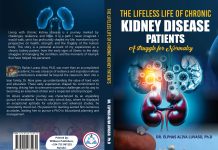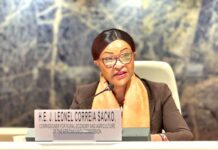
- Sustainable development begins with governance that prioritizes the collective good above narrow interests. Countries that prioritize education and health not only raise productivity but also build resilience and foster social mobility.
- To build resilience, countries must nurture innovation ecosystems that diversify their economies. This requires vibrant research institutions, entrepreneurial incubators, and supportive financial frameworks.
- Nations that exploit resources without regard for the future fall into destructive cycles of boom and bust. Environmental stewardship, through renewable energy adoption, sustainable agriculture, and conservation safeguards both ecosystems and long-term prosperity.
The true measure of a nation’s greatness lies not merely in its GDP figures, but in the lived realities of its people: their health, education, safety, and opportunities for advancement. To strategically raise the standard of living, a country must embrace a holistic and disciplined approach. This blueprint rests on five foundational pillars: governance, infrastructure, human capital, innovation, and sustainability.
Governance and Institutions
Strong, transparent, and accountable institutions are the backbone of any thriving nation. Corruption, bureaucracy, and political instability weaken trust and stall progress. Sustainable development begins with governance that prioritizes the collective good above narrow interests. This calls for clear legal frameworks, an independent judiciary, and active civic participation. When citizens trust their government, they invest more, contribute more, and feel secure about the future.
Infrastructure and Connectivity
No country can rise above the strength of its infrastructure. Roads, ports, energy grids, and digital networks are the arteries of economic activity. Strategic investment in both physical and digital infrastructure lowers transaction costs, boosts productivity, and links rural communities to national and global markets. In today’s world, reliable electricity and high-speed internet are not luxuries—they are necessities for inclusion in the modern economy.
Human Capital Development
A nation’s true wealth lies in the skills, knowledge, and health of its people. Universal access to quality education, from early childhood to tertiary levels ensures a steady stream of capable citizens ready to innovate and compete globally. At the same time, strong health systems must provide preventive care, efficient hospitals, and mental health support. Countries that prioritize education and health not only raise productivity but also build resilience and foster social mobility.
Innovation and Economic Diversification
Over-reliance on a single resource or sector leaves nations vulnerable. To build resilience, countries must nurture innovation ecosystems that diversify their economies. This requires vibrant research institutions, entrepreneurial incubators, and supportive financial frameworks. Strategic partnerships with global industries can accelerate technology transfer, while investing in local talent ensures that innovation directly benefits citizens. Emerging sectors such as the digital economy, renewable energy, and biotechnology hold immense transformative potential.
Sustainability and Social Cohesion
True progress is sustainable progress. Nations that exploit resources without regard for the future fall into destructive cycles of boom and bust. Environmental stewardship, through renewable energy adoption, sustainable agriculture, and conservation safeguards both ecosystems and long-term prosperity. Equally vital is social cohesion: inclusivity and equity must be at the heart of development. Growth that benefits only a fraction of the population is unstable and ultimately self-defeating.
Conclusion
Raising the standard of living is not an accident, it is the result of deliberate and visionary choices. Governance, infrastructure, human capital, innovation, and sustainability together form the pillars of enduring development. When nations commit to these principles with clarity and discipline, they elevate not only the material conditions of their citizens but also unlock their potential to dream, create, and thrive. In doing so, they secure a future where prosperity is both shared and lasting.
Dr. Raphael Christopher is a seasoned legal and business professional with expertise spanning law, education, and marketing. A Senior Member of the Nigerian Bar Association (Enugu Branch), he champions justice, ethics, and professional growth. As Managing Director of The Law Market Nigeria & Africa, he drives innovation and access to legal services across the continent, fostering collaboration and empowerment.
YOU MAY ALSO READ: Re-thinking Africa’s Development Beyond Political Cycles









































